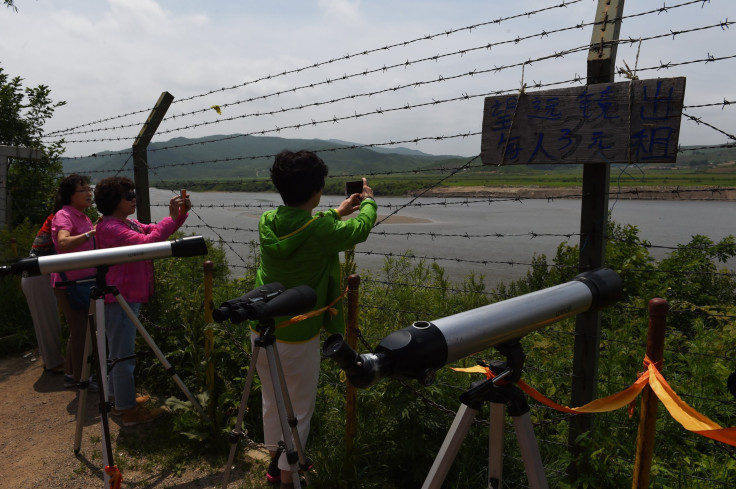Colleagues Of North Koreans Who Defected To Seoul May Be Hiding In China Under South Korea’s Protection: Report

Colleagues of the 13 North Korean restaurant workers who defected to South Korea last week may still be hiding in China under the protection of the South Korean government while they waited to reach Seoul, sources told South Korea's Yonhap News Agency. The number of North Korean defectors rose 17.5 percent in the first quarter compared to the year before as more people sought to flee the Kim Jong Un regime, the report added.
The Yonhap report said Tuesday that five to seven North Koreans, who used to work at a restaurant in the Chinese eastern port city of Ningbo, were believed to be hiding in different regions of the country. The defection of the 12 workers and one restaurant manager — all of whom belonged to upper middle-class families — marked the first mass defection since 2011.
“As the latest mass defections have been made public, it is not easy for the remainder to move [even if they want to enter South Korea],” a source told Yonhap, dismissing rumors that they were hiding in an unidentified Southeast Asian country. The South Korean government has reportedly refused to comment on whether more North Koreans were planning to defect to Seoul.
According to estimates by South Korea’s Unification ministry, between January and March, about 342 people, who had escaped from North Korea, reached the South, up from 291 last year during the same period. By the end of March, the total number of North Korean defectors stood at over 29,000, with more than 1,280 people arriving in South Korea last year, Yonhap reported. The South Korean ministry reportedly said that there was a possibility the total number could soon cross 30,000.
“The livelihood of North Koreans appears to be tough due to the regime's continuous mobilization of its people ahead of the North's key events such as last year's party anniversary and the upcoming party congress in May,” Kim Yong-hyun, a professor of North Korean studies at Dongguk University in Seoul, said, according to Yonhap.
Also, the number of male defectors in the first quarter rose 54 percent to 77 compared to the previous year, while the number of female defectors rose 10 percent to 265. The Yonhap report said that the number of male defectors was witnessing a fall because it was easier for the Kim Jong Un regime to scrutinize men at the workplace.
“(The first-quarter data) could reflect a temporary rise. It is too early to judge (when it will top the mark),” an official from South Korea's Unification ministry said, according to Yonhap.
China does not recognize the defectors as asylum-seekers, and many of them have faced harsh punishments and even execution after their repatriation, Yonhap said.
North Korea is reportedly believed to be operating about 130 restaurants in foreign countries that generate about $10 million in cash for Pyongyang, which currently faces sanctions from the United Nations over the country’s nuclear test, rocket launches and missile tests.
On Monday, reports said that a senior North Korean military officer, tasked with conducting intelligence operations against Seoul, defected to South Korea last year. The official, whose identity was not revealed, was working in North Korea’s Reconnaissance General Bureau. Another North Korean diplomat stationed in an African country also defected to South Korea last May, along with his family.
© Copyright IBTimes 2025. All rights reserved.




















